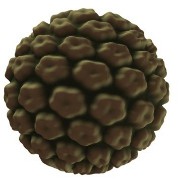 Photo: Getty Images
Photo: Getty Images
The Advisory Committee on Immunization Practices has finally stopped their two years of stalling since approving the HPV vaccine Gardasil for boys and young men in their vote yesterday which now makes the vaccine recommended for both sexes. It was previously only approved for males but not recommended as it has been for females.
"HPV vaccination of males offers the opportunity to decrease the burden of disease in both males and females," Dr. Schuchat said. Dr. Anne Schuchat is the Director of the CDC’s Immunization and Respiratory Disease. She went on to state that it is important that immunization take place before exposure to the virus.
What is interesting about Dr. Schuchat’s comments is that the information she refers to in making this decision is relatively no different than information which has been available for two years now but for which the ACIP has dragged their feet, leaving the burden on women when it comes to vaccination.
Manufacturer’s recommendations are that both males and females be vaccinated at approximately 12 years of age and yet many groups are outraged that this vaccine is being utilized on “our young girls”.
Parents typically do not wage major campaigns against childhood vaccines such as polio or measles, mumps and rubella (MMR) like they do against the HPV vaccine and those vaccines are being given to infants who are far more vulnerable to such negative effects than the 11- or 12-year-old girls (and now boys) to whom the HPV vaccine is recommended.
This new recommendation included males up to the age of 21. However, Dr. James C. Turner, MD, executive director of the American College Health Association, stated during the ACIP meeting that “the recommendation to vaccinate boys only through age 21 years may be too limited.” He estimated that about 70 percent of HPV vaccines given to men and women during the college years are given to students older than 21 years.
Previous studies on college students have shown that acquisition of HPV happens more than half the time during the four years that a student spends in college. Apparently this information was not important enough to be incorporated into these new recommendations.
Research performed on college students indicates that their knowledge of HPV and understanding of self-protective practices were inadequate. Not all students following the standard of graduating from high school and immediately entering college. Many now take a year or two off to spend in the work force before starting college thus increasing the ages of college students beyond that of 21.
The CDC, which has already earlier this year admitted to their abysmal figures when it comes to HV vaccination, needs to reassess its educational programs as well -- not only or females but men as well. No longer can this be focused upon relating only to cervical cancer and as a woman’s issue. After all, men are the ones who transmit HPV to these women, aren’t they?
Sources:
Annang L, and Tanner A.. "HPV knowledge and behaviors of black... [J Am Coll Health. 2007 Sep-Oct] - PubMed - NCBI." National Center for Biotechnology Information. N.p., n.d. Web. 26 Oct. 2011.
http://www.ncbi.nlm.nih.gov/pubmed/17967762
"ACIP Recommends HPV Vaccine for 11- to 12-Year-Old Boys." Medscape: Medscape Access. N.p., n.d. Web. 26 Oct. 2011. http://www.medscape.com/viewarticle/752193
"ISPUB - HPV Knowledge Among Female College Students and the Short Term Effectiveness of HPV Education." ISPUB - Internet Scientific Publications. N.p., n.d. Web. 26 Oct. 2011. http://www.ispub.com/journal/the_internet_journal_of_academic_physician_assistants/volume_7_number_2_30/article/hpv-knowledge-among-female-college-students-and-the-short-term-effectiveness-of-hpv-education.html
Reviewed October 26, 2011
by Michele Blacksberg RN
Edited by Jody Smith





Add a CommentComments
There are no comments yet. Be the first one and get the conversation started!